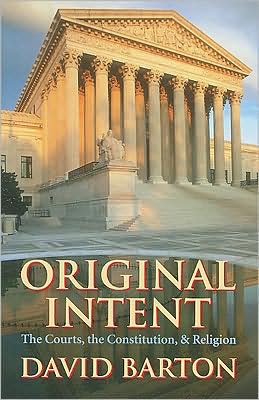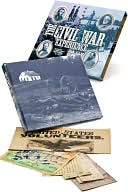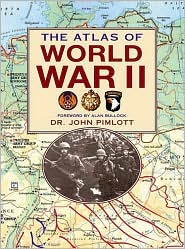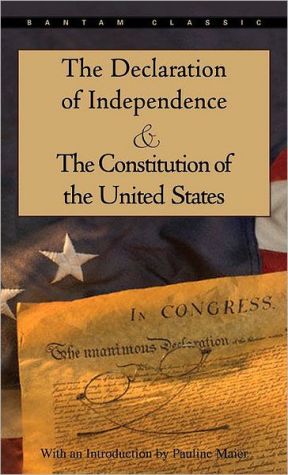Historical Atlas of Canada: Canada's History Illustrated with Original Maps
Canada's history comes alive in this innovative book, which utilizes historical maps to illustrate and illuminate the past. Here are the often colorful, sometimes bizarre maps of European explorers who discovered the Americas while seeking a route to the riches of the Orient. Many of these early maps depict imagined straits and passages; one shows the St. Lawrence River flowing from an opening on the coast of California.\ Maps show what was known -- and often how little was known -- in a...
Search in google:
Hayes, author of a historical atlas of British Columbia and the Pacific Northwest, presents 420-plus original maps that illustrate the story of Canada's history for a period of a thousand years. They include charts by founder of New France Samuel de Champlain, by master mapmaker James Cook, and master surveyors Thompson, Turnor, and Fidler; Spanish, Russian, American, Italian, and Dutch maps; and maps drawn by native people such as the Beothuk, Blackfoot, and Cree. Each illustration is accompanied by a description, and the text provides explanatory background and information. Oversize: 10.25x14". Annotation c. Book News, Inc.,Portland, OR Library Journal Covering a period of 1000 years for the territory that became Canada and the northern United States, this atlas contains 422 maps, a very high proportion of which are from the National Archives of Canada. Each map is richly annotated by Hayes (Historical Atlas of British Columbia and the Pacific Northwest) with descriptions of its provenance and historical significance. The many gems include what may be the earliest surviving map (dated 1541) to use the name Canada and native maps drawn by the Beothuk, Blackfoot, and Cree Indians. Also presented are original English, French, Spanish, Russian, American, Italian, and Dutch maps, with place names and legends in their respective languages. Hayes intended this book as a history illustrated with maps rather than a carto-bibliography, and there is a definite synergy between the text and the illustrations. The text is necessary to explain the purpose of each of the maps, and therein lies the rub for the collection placement of this book. Patrons of both public and academic libraries might be better served were this title placed in the circulating collection. Regardless of placement, however, this is a well-recommended book for academic and larger public libraries.-Kara L. Giles, Dominican Univ. Lib., River Forest, IL Copyright 2003 Cahners Business Information.
Acknowledgements4Introduction7Saint Brendan and Other Early Navigators9The Norse Voyages10Pre-Columbian Apocryphal Voyages13Out of the Mists--Canada15Early Explorations of the Coasts of Canada, 1500-152720Early French Explorations24Jacques Cartier--the Foundation of the French Claim to Canada25Early English Attempts to Find a Northwest Passage34Probing the Northern Seas38Early English Colonization Attempts45Samuel de Champlain--the Mapmaker Who Founded New France49The Founding of Montreal57Jesuits and the Fur Trade--French Exploration to 170058The Defence of New France to 171370The Seigneurial System76The Coming of the English--the Hudson's Bay Company77The British Attempt to Find the Northwest Passage in the Eighteenth Century80The French Fur Trade Empire85France Explores Westwards--the La Verendryes86The Fall of Louisbourg in 174588Jacques-Nicolas Bellin's Atlas90The Founding of Halifax92The Acadian Deportation95The Battle for a Continent--the French and Indian War96The Fall of Quebec--and an Empire99James Cook's Maps of Eastern Canada106James Murray's Map112Quebec under the British114The American Attack on Quebec116Prince Edward Island118The Coastal Surveys of Des Barres120The Demise of the Beothuk122Defining Canada, 1783124The Coming of the Loyalists126Perceptions of the West132An Inland Journey136Alexander Henry's Great Map of the West138The Maps of Peter Pond140Alexander Mackenzie Crosses the Continent143The Hudson's Bay Company Moves Inland146The Hudson's Bay Company's Great Surveyors--Philip Turnor and Peter Fidler147Native Maps152The First Map of the West Coast156James Cook--Defining the Width of Canada158West Coast Exploration and Trade159Spanish Explorations of the West Coast160George Vancouver Surveys the West Coast163Defining the West--David Thompson166Early Toronto169A Mere Matter of Marching--the War of 1812172The Selkirk Grant and the Red River Settlement178Fixing the Forty-ninth Parallel Boundary Line180The Rideau Canal181The Canada Company182Arctic Exploration 1818-1859184Westward Expansion of the Fur Trade197The Rebellions of 1837 and the United Province of Canada20Linking the Lakes201Drawing the Line--the Webster-Ashburton Treaty202The Founding of Fort Victoria and the Colony of Vancouver Island203The Forty-ninth Parallel Extends to the Sea204A Pioneer Road Map of Canada205British Columbia Discovers Gold and Becomes a Colony206Henry Hind's Expeditions207The Palliser Expedition208The Coming of the Railway210Confederation and the Intercolonial Railway212The Riel Rebellion of 1869213Manitoba Becomes the Fifth Province214British Columbia Joins Confederation215The North-West Rebellion, 1885216The Canadian Pacific Railway--the Settlement of the Prairies and the Linking of a Nation218Winnipeg--Gateway to the West227Edmonton--Gateway to the North228Calgary--from Police Post to Oil Capital230The Discovery of Oil232The Art of the Bird's-Eye233Vancouver--Pacific Terminus236Ottawa--the Nation's Capital238Toronto in the Nineteenth Century240Montreal after the Fall of New France242Gold in the Klondike244The British Dominion246The Canadian Arctic and the Northwest Passage Achieved248Fire Insurance Maps251The Boundary with Alaska252The Evolution of Provincial Boundaries253Map Catalogue257Notes264Bibliography265Index268
\ Library JournalCovering a period of 1000 years for the territory that became Canada and the northern United States, this atlas contains 422 maps, a very high proportion of which are from the National Archives of Canada. Each map is richly annotated by Hayes (Historical Atlas of British Columbia and the Pacific Northwest) with descriptions of its provenance and historical significance. The many gems include what may be the earliest surviving map (dated 1541) to use the name Canada and native maps drawn by the Beothuk, Blackfoot, and Cree Indians. Also presented are original English, French, Spanish, Russian, American, Italian, and Dutch maps, with place names and legends in their respective languages. Hayes intended this book as a history illustrated with maps rather than a carto-bibliography, and there is a definite synergy between the text and the illustrations. The text is necessary to explain the purpose of each of the maps, and therein lies the rub for the collection placement of this book. Patrons of both public and academic libraries might be better served were this title placed in the circulating collection. Regardless of placement, however, this is a well-recommended book for academic and larger public libraries.-Kara L. Giles, Dominican Univ. Lib., River Forest, IL Copyright 2003 Cahners Business Information.\ \








